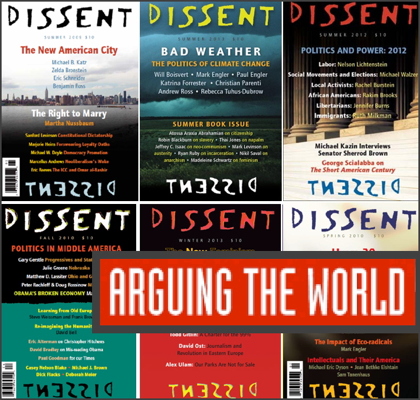A dispatch for the “Arguing the World” blog at Dissent magazine.
Published in Dissent.
How many things that the technocratic experts at the International Monetary Fund (IMF), World Bank, and U.S. Treasury for years have told developing countries were part of the “right way” to run their economies will turn out to be complete garbage? The number is piling up. Of course, activists have been criticizing these policies for many years. But it has taken decades for the truth to start penetrating establishment circles.
The neoliberal push to remove public oversight and allow corporations to regulate their own industries is currently looking idiotic on so many fronts that it’s hardly worth going into. But even some of the more basic and more accepted market fundamentalist ideas about how an economy should be managed are now being called into question.
Industrial policy is a key case in point. Dani Rodrik, professor at Harvard’s Kennedy School of Government, recently wrote a nice article entitled, “The (Eternal) Return of Industrial Policy.” There he points out that, in contrast to received wisdom, “successful economies have always relied on government policies that promote growth by accelerating structural transformation.”
“British Prime Minister Gordon Brown promotes it as a vehicle for creating high-skill jobs. French President Nicolas Sarkozy talks about using it to keep industrial jobs in France. The World Bank’s chief economist, Justin Lin, openly supports it to speed up structural change in developing nations. McKinsey is advising governments on how to do it right.
Industrial policy is back.”
As he goes on to rightly note, it never really went away. The big players—from the U.S. to China—have always used public supports and subsidies for key industries, even while mouthing the mantra that government “shouldn’t pick winners.” Likewise, mainstream development circles have long treated “industrial policy” as a dirty word, yet if you take a closer look, even right-wing favorites such as Chile have used it to good effect. Rodrik writes:
“Chile, which is often portrayed as a free-market paradise, is another example. The government has played a crucial role in developing every significant new export that the country produces. Chilean grapes broke into world markets thanks to publicly financed R&D. Forest products were heavily subsidized by none other than General Augusto Pinochet. And the highly successful salmon industry is the creation of Fundación Chile, a quasi-public venture fund.”
Chile watchers will also note that the country’s state-owned copper company is a very significant player in the economy, accounting for a substantial portion of government revenues—hardly an example of unfettered private enterprise.
Given its ideological blinders, I don’t expect the IMF to come around any time soon on industrial policy. However, there are other areas where even the orthodox priests of neoliberalism are being forced to see the light. Take capital controls. In the wake of the recent financial collapse, the long-maligned idea that government controls on of the amount of investment coming into and out of countries’ economies can be prudent is again gaining acceptance. As Kevin Gallagher noted in a recent Foreign Policy piece, an IMF paper from February promotes the use of capital controls to dampen over-optimism and the herd effect of unrestrained investment.
The folks over at the Center for Economic and Policy Research (CEPR) have also been doing great work on capital controls recently. And they have been slamming the IMF for continuing to push pro-cyclical policies—cutting public employment, limiting government involvement in the economy, and fighting inflation at all costs—even amid grave economic crisis. The bottom line is that the financial institutions are still asking poorer countries to adopt extreme policies that would provoke widespread outcry if imposed at home. As before, they are increasing the pain of economic downturn (unemployment, desperation, poverty) for working people. They are wrong to do so, and the consequences of their actions are real.
Why, at this late date, the United States and the institutions of the “Washington Consensus” are in the business of telling other countries what to do with their economies at all is a pretty big mystery. The IMF has agreed on a 2010 budget of over $1 billion. Yet, despite these massive resources, they failed to see the global economic crisis coming, failed to warn against the U.S. housing bubble, and there’s a strong case to be made that their prescriptions for the developing world have done more harm than good for decades on end. If the tea party people and their international counterparts are seeking to cut big government, this looks to me like a pretty good place to start.
